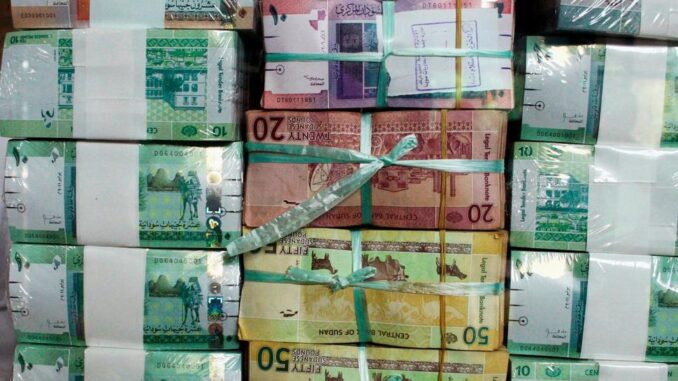
It is a brutal but expected devaluation of the pound that the Sudanese Central Bank announced on Sunday, February 21, announcing a unification of exchange rates. Sudan is going through a serious crisis. Shortages and rising prices are making life difficult for the population. The measure, in the form of an electroshock, would help stabilize the economy.
In concrete terms, the Sudanese Central Bank is aligning itself with the black market rate. The rate of the Sudanese pound will rise from 55 pounds for one dollar to 375. The measure is accompanied by increased exchange controls and was expected by donors and the IMF, who demanded “monetary truth”.
The measure was loudly demanded not only by the International Monetary Fund, but also by the donor community as a whole. For them, the Sudanese economy could no longer live in the monetary lie, with an official price of the pound 6 times lower than the black market price.
By aligning the two exchange rates, the Central Bank is paving the way for a whole series of financial support programs. Thus the United States and Great Britain will be able to release more than 1.5 billion dollars in assistance, including a 450 million dollar program for the poorest families.
Better still, the IMF, which has already welcomed the government’s economic reform program, will now be able to restructure the country’s huge debt. It exceeds $60 billion. However, this devaluation is likely to inflame the streets a little more.
With crying shortages of bread, medicine, fuel, and inflation approaching 300% annually, the Sudanese are facing terrible difficulties. Last year, the end of a number of costly bread and fuel subsidies led to an outbreak of demonstrations.
